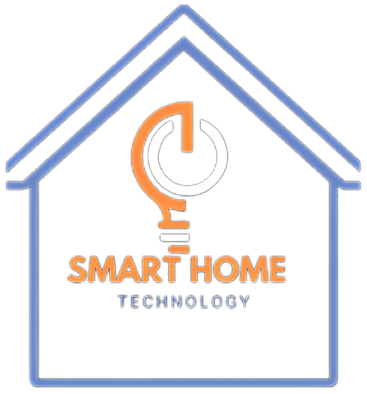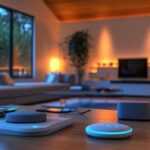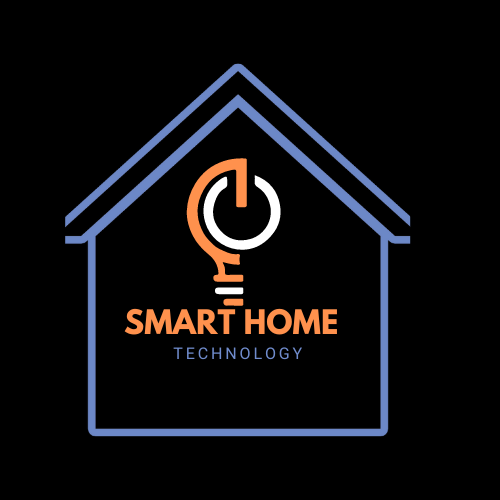Table of Contents
Is it really worthwhile to enter the closer world of smart homes? As of 2017, nearly 40% of the households in the United States have smart devices, and thus this tendency is clearly developing.
From switching off your lights with your voice to calling your security systems to close your doors, smart homes give you power at your fingertips.
However, is it really worth the price? While using smart devices, consumers can save time and money to be spent on energy and can improve security.
Several vices are associated with smart devices, such as the cost of installing smart devices and privacy issues.
In this article, we’ll then look at the benefits and drawbacks of smart homes to help you decide whether they are worth it.
What is a Smart Home?
A smart home applies advanced technology in an endeavor to enhance comfort, speedy operations, and safety. In its simplest form, it links typical home devices and gadgets to the web so that their functions can be managed via an app on the smartphone, voice commands, or through integrated programming.

Photograph: Mcnair custom homes
What are the Key Features of a Smart Home?
Smart home products are devices created to enhance your home and its features. Some of the most common devices are:
– Smart Speakers: These speaker systems powered by voice recognition assistants such as Alexa (logo for Amazon Echo), or assistants such as Google Home make it possible to respond to a command and control the music, lights, and other gadgets.
– Smart Thermostats: Connected thermostats such as Nest are able to learn and then control the temperature according to the user’s expectations.
– Smart Lighting: Smart bulbs can be operated remotely to give moods; to save energy; and also for automation.
– Security Systems: This comprises smart cameras, doorbell and smart locks making homes secure and easy to monitor.
Is a Smart Home Worth It?
Most homeowners quickly discover that the advantages of a smart home are numerous and the overall cost of a smart home is worth it. Of course, it may be rather costly in the beginning, but it is much cheaper in the long run, and it also gives people much more confidence.
Benefits of a Smart Home
Smart home technology is the use of technology in homes today that makes homes more convenient, efficient, and secure as well. Living in a smart home means that now more than ever, it is possible to make every home feature as convenient as you want. In the sections that follow, we outline the many advantages that come with smartenizing your home.
1. Ease
– Voice-Controlled Operations: Make managing your home easier by using your voice through virtual personal assistants such as Alexa or Google Home. Smart gym, and touchless controls for lights, temperature, & more at the push of a button.
– Remote Access: Automate control of your devices with mobile applications. This means whether you are at the workplace or away on a holiday, you can manage everything from your temperature to your security cameras.
Photograph: Freepiks
2. Energy Efficiency and Cost Kapers
– Smart Thermostats: Such gadgets as the Nest thermostat device learn your schedule and tend to fix the temperatures accordingly, helping you conserve power and reduce your electricity expenses.
– Smart Lighting: Several types of lights including those that switch off when there are no users or when it is dark turns will help lower light usage.
– Efficient Appliances: An example is smart refrigerators, washing machines, and even smart dishwashers consume less energy hence saving costs in the long run and.
3. Enhanced Security
– Smart Cameras and Video Doorbells: Keep an eye on your home at all times and be alerted if anything unexpected is discovered. Smart devices, such as the Ring, allow you to watch guests via a video doorbell.
– Smart Locks: Lock and unlock your home’s doors and entryways from your smartphone, and receive alerts when someone opens or closes the entrance.
– Integrated Alarm Systems: Smart security alarms may be readily connected to a phone to notify the owner when they are activated, making the owner feel safe while they are away.
4. Accessibility and Support for Elderly or Disabled Individuals
– Voice-Activated Assistance: Smart home technologies allow elders and disabled people to control vital systems such as lighting, thermostats, and doors without having to move around.
– Automated Reminders: Smart devices can send reminders for medicine, appointments, or daily duties, increasing independence while lowering the risk of forgetfulness.
– Home Automation for Mobility Challenges: Automatic doors and motion-sensor lights make it easier for those with mobility challenges to get about their houses.
5. Increased Home Value
– Homebuyers Value Smart Technology: Homes with smart gadgets such as thermostats, lights, and security systems are more enticing to potential buyers, enhancing your home’s resale value.
– Future-Proof Your Home: As smart home technology becomes more interwoven into modern lifestyles, owning a connected home puts you ahead of the competition.
6. Improved Comfort and Personalization
– Customized Settings: Personalize the temperature, lighting, and music. Smart home systems may respond to your habits, producing the ideal ambiance at any moment.
– Climate Control: Smart air conditioners, heaters, and thermostats work together to keep your home’s temperature stable and comfortable.
7. Health and Wellbeing
– Air Quality Monitoring: Smart air purifiers and humidity sensors promote a healthier indoor environment by alerting you to bad air quality and pollutants.
– Smart Sleep Systems: Devices such as smart mattresses and sleep trackers can improve your sleeping circumstances by altering the hardness of the bed or monitoring your sleep habits.
The smart home has several benefits as listed over the long run, giving a good verdict in answering the question, is a smart home worth it?
Disadvantages of Smart Homes
Smart homes provide incredible convenience and energy efficiency, but there are certain drawbacks to be aware of. While smart home technology offers numerous advantages, it also has several potential downsides.
Let’s look into these worries, which include startup fees, privacy dangers, compatibility challenges, and more.
1. Initial costs and setup complexity
Setting up a smart house can require a big investment. Here are several important factors:
– High initial costs: Smart thermostats, lights, security cameras, and other devices may appear inexpensive individually, but installing a full home with these gadgets may rapidly add up.
– Expert Installation: Some gadgets, particularly those that necessitate sophisticated installations or updates to your home’s infrastructure, may require expert installation.
– Ongoing fees: You may be charged for cloud storage, smart service subscriptions, or new gadgets that improve your system. While the cost-benefit analysis for smart homes may show long-term energy and convenience benefits, the initial expense and complexity of installation may be deterrents.
2. Privacy and Security Concerns
As more gadgets collect data, there are privacy and security concerns to consider.
– Data vulnerabilities: Many smart home gadgets store sensitive information, such as voice recordings, video feeds, and usage trends, on the cloud, leaving them susceptible to hackers or unauthorized access.
– Hackers gaining control: Devices like smart locks and cameras can be hacked, possibly allowing thieves access to your home security.
– Surveillance risks: Constant data collecting might raise privacy worries, as hackers or even organizations may misuse your personal information.
For these reasons, it’s critical to select smart home devices with strong security features and stay current on software updates and patches.
3. Compatibility Issues
Smart home gadgets often come across compatibility issues, which might impede the smooth operation of your home automation system:
– Brand-specific ecosystems: Many devices are only compatible with the same brand’s ecosystem, limiting your freedom to mix and match products.
– Integration issues: A smart light may not sync with a different brand’s smart thermostat, necessitating the use of third-party hubs or apps, which complicates the system.
– Technology fragmentation: Without universal standards, different products may use multiple platforms (for example, Google Assistant, Amazon Alexa, or Apple HomeKit), making them difficult to control from a single interface.
Compatibility difficulties might cause irritation and increase costs because you may need to integrate things across many platforms or devices.
4. Dependence on Internet and Power
Smart homes rely significantly on an internet connection and a stable power source.
Here’s why this could be an issue:
– Connectivity issues: If your internet connection fails or slows down, many smart gadgets will lose functionality. This can have an impact on everything from lighting to security systems.
– Power outages: Because most smart gadgets run on electricity, a power loss can interrupt the entire operation of your smart home, jeopardizing security and convenience.
– Remote access limitations: If your internet goes down, you may lose the ability to access equipment remotely using smartphone apps or other control systems.
This need for regular power and connectivity might be a drawback, particularly in locations with frequent internet outages or inconsistent electricity.
5. Technical Support and Maintenance:
Maintaining a smart home system can be more complicated than traditional gadgets.
– Frequent updates: Smart gadgets frequently require software updates to improve functionality or security, so you must stay up to date on new releases and patches.
– Troubleshooting problems: When anything goes wrong, troubleshooting can be difficult, especially if you’re not a tech expert. Many devices require specialist knowledge or internet forums to fix problems.
– Device obsolescence: As time passes, smart home equipment may become obsolete, necessitating an upgrade or replacement to ensure interoperability with newer technology.
The requirement for ongoing maintenance, updates, and troubleshooting can be burdensome, especially for homeowners who prefer simple, low-maintenance systems.
By evaluating concerns against the benefits, you may evaluate whether a smart home is the best decision for you.
Cost vs. Value: Analyzing ROI
When deciding whether to invest in smart home gadgets, it’s crucial to weigh the initial cost against the long-term savings and potential property value gains.
Here’s a breakdown to help you make an informed choice.
Upfront Investment vs. Long-term Savings
One of the most important issues to consider is if a smart home is worth the investment. While smart home devices may appear to be expensive at first, they generally result in significant long-term savings.
Here’s how smart technology can help you save money:
–Smart Thermostats: Devices such as Nest and Ecobee can improve your heating and cooling systems, lowering energy use. On average, these systems can reduce utility bills by 15-20% each year.
– Smart Lighting: Installing smart lighting systems enables you to control lights remotely, schedule when they turn on or off, and guarantee they are not left on needlessly. This could lead to decreased electricity bills.
– Smart Plugs and Appliances: With smart plugs, you can monitor and adjust the energy use of specific appliances. This is especially handy for regulating power-hungry gadgets and lowering your overall energy usage. These savings can eventually offset the initial cost, making smart home gadgets an important consideration in long-term financial planning.
Property Value Impact
Another question that many people ask is whether or not the idea of a smart home will enhance the value of your premises. While the effect of smart home devices on property value can vary, several factors point to a positive return on investment:
– Increased Market Appeal: Buildings with technologically integrated systems including lighting, security and temperatures are preferred by the ever increasing number of people who prefer homes with advanced technology.
– Energy Efficiency: More and more, consumers want energy-efficient homes with Automatic smart thermostats and lights among other smart technologies. The other advantage of making your property more efficient is that the utility costs will be lower, making the property more attractive.
– Faster Sales and Higher Prices: Research shows that houses that are fitted with smart devices take less time to be off the market; sometimes they even attract a better price than houses that do not have such appliances since people are willing to pay for suitable and convenient gadgets.
The installation of the smart home features improve the worth of your house making it more marketable in the current property market.
All in all, the cost of smart home devices may seem on the steep side initially, but considering potential further expenses, including maintenance and, hypothetically, higher resale value, smart home devices are worth the money. In the consideration of the smart home cost benefit analysis nothing is farther from the truth that the gains offsets the price.
Who Would Need a Smart Home?
Smart homes are a useful innovation for millions of people who want to improve their houses. Then, to whom does it make sense to switch to a smart home?
– Tech Enthusiasts: In the case of smart home technology, if the involved technologies interest and are exciting to you, this is your best bet. Smart home devices such as voice assistant, smart thermostat, and smart lighting are almost uncountable when it comes to customization for technology enthusiasts.
– Families: Basically, smart home technology can make life easier for busy families. The smart security systems, cameras, and appliances will help any parent monitor your home and thus provide for security and comfort. Moreover, such smart home advantages as improved energy consumption can lead to lower everyday expenditures making the atmosphere at home more appropriate for every member of a family.
– Busy Professionals: Smart homes mean ultimate comfort for those who lead an active lifestyle and spend most of the time outside their homes. From regulating the lighting and temperature in your home, to designing a smart working from home environment, these systems enable you to control your house from a distance. One of the biggest advantages of smart home cost-benefit is time and effort.
In deciding whether Smart Home is worth it, think about your daily life and requirements. Smart home devices will be the perfect investment if their integration will save you time, optimize your house functions, or provide you with better everyday experiences.
Conclusion
Altogether, smart homes come with inspiring opportunities – comfort without effort, energy efficiency, safety – but they are not without their issues. But the high costs, emergence of privacy issues, and gadget failures pause here. Is it worth it? That depends on your lifestyle. And you will be happy with smart stuff only if you want automation and a permanent economy at the cost of our lives. But if the upfront costs and data security remain a concern to you, then it is worth thinking about it. When you look at the positives and negatives, you will gain the best answer on what should happen to your home.
Frequently Asked Questions
1. What are the key features of a smart home?
The features include smart lighting in smart homes, voice interfaces, smart thermostats, smart security systems, and smart home accessibility through mobile smartphones.
2. What are the benefits of having a smart home?
It provide energy conservation, comfort, increased security, and reduced utility expenses due to rational control of devices.
3. What are the disadvantages of a smart home?
Some of the most significant disadvantages of utilizing common types of movers are high initial costs, privacy issues, and dependence on reliable internet connections. Is a smart home cost-effective in the long run?
4. Does it save money in the long term?
Yes, smart home systems save energy requirements, are compelling enough to manage bills, and thus, are economical in the long run.
5. Can a smart home increase property value?
Yes, integrated smart systems are popular with home buyers, and homes with such systems will likely find buyers in a competitive market at higher prices.




Greetings! Very helpful advice on this article! It is the little changes that make the biggest changes. Thanks a lot for sharing!
There’s a quality in your writing that transcends the typical bounds of literature. It doesn’t simply convey ideas — it invites the reader to explore them from within, to sit with them in silence and feel their deeper meanings settle. This is the sort of writing that not only informs, but transforms. You’ve managed to make something as ordinary as words into a space where one can feel truly alive.
Este site é realmente fabuloso. Sempre que acesso eu encontro coisas boas Você também vai querer acessar o nosso site e saber mais detalhes! conteúdo único. Venha saber mais agora! 🙂
whoah this blog is wonderful i love reading your posts. Keep up the good work! You know, lots of people are searching around for this info, you can aid them greatly.
I have been exploring for a little bit for any high-quality articles or blog posts on this kind of space . Exploring in Yahoo I finally stumbled upon this web site. Studying this info So i am happy to express that I have a very just right uncanny feeling I came upon just what I needed. I such a lot for sure will make certain to don¦t omit this web site and give it a glance regularly.
I do agree with all of the ideas you have presented in your post. They’re very convincing and will definitely work. Still, the posts are very short for novices. Could you please extend them a little from next time? Thanks for the post.
С девушка психолог онлайном
онлайн вы преодолеете страхи.
Получите помощь прямо из дома!
Ужасы на сайте — для тех, кто любит пощекотать нервы.
https://wlvos.nl/index.php/User:NanceeBagley78
Криминал на сайте — это нечто, сюжеты закрученные, не оторваться.
https://king-wifi.win/wiki/User:JoellenGair
Боевики с трюками и взрывами, адреналин зашкаливает.
http://dogetransparency.wiki/index.php/User:RickeyBernier
Получил удостоверение на 2 группу, всё прошло гладко.
http://taxwiki.us/index.php/Bezopasnost_7m
Wynstar — кто пробовал эти шины на
самосвалах? Поделитесь!
http://histodata.ch//Weinlager/index.php?title=Benutzer:VernaDelancey
Crypto trading bot has been saving me hours
https://www.ge.infn.it/wiki//gpu/index.php?title=Cryptonim_AI_Tools_For_Solana_Projects